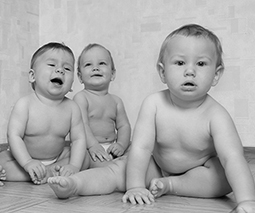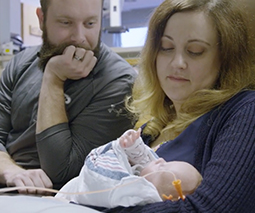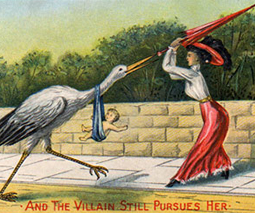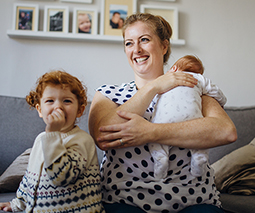How to choose the right fertility doctor for you

When managing infertility, I was told the obvious: don’t smoke, limit caffeine, stress less … No one told me to pause and assess whether my fertility doctor was right for me.
After all, a fertility doctor is more than a health care provider. They become your mentor, your confidant, the third wheel in your relationship. You will share intimate details of your sex life with them. You will allow them to poke and prod your most private parts. You will become reliant on their care and expertise.
You will pay them a lot.
It seems obvious then, that you need the right doctor who can support you and your partner during a very painful and vulnerable time.
Read more about fertility:
- Keen to be a surrogate or looking for one? Here’s what you need to know
- AMH: Can this hormone really predict your fertility?
- Couple’s raw Instagram post reveals the agony of fertility struggles
So how do you choose a fertility doctor?
Referrals
Get a referral from your GP. If your friends and family can recommend someone, great. But not everyone will know a great fertility doctor like they know a great restaurant. Online reviews don’t seem that reliable either with a low number of reviewers and vague commentary. We don’t tend to openly talk about infertility, let alone leave feedback about our infertility experience.
Research
Once you have a referral, check the doctor’s website and what they offer. Fertility, gynaecology, obstetrics are often lumped together but they are different. If for example, you would like the same doctor to deliver your baby after your fertility treatments, check that your doctor can provide obstetric services too.
Make a few appointments
Unless your doctor is outright rude or dismissive, you may not know if the doctor is right for you immediately but there will be clues. Over time, we found our first fertility doctor to be very literal. When she first suggested hormone injections to track my cycle, I asked where I would get the needles. She gave me the address of the clinic. I had meant where on my body.
She never said “have sex”; she would instruct us to “try.” That made me awkward when I had to share very personal information like the intensity of my period.
Don’t be afraid to switch
After seven months of tests, scans and cycle tracking with our first doctor, she recommended IVF as our next step. It was only when I asked if we had done everything possible (prior to starting IVF), that she offered us a laparoscopy, a type of keyhole surgery performed under a general anaesthetic. The surgery would look for and treat endometriosis. This could assist with fertility.
As IVF could work with mild endometriosis, she recommended skipping surgery and proceeding with IVF.
She reminded me, in case I had forgotten, that the goal was a baby. Surgery delayed babies. IVF gave you babies. While her advice made some sense, leaving possible endometriosis untreated did not sit well with me so we sought a second opinion.
Although it meant going back to the GP, seeking a new referral, joining the new patient waiting list and repeating our story to a new doctor, we were glad we did it.
The new doctor had a noticeably different bedside manner. He described the laparoscopy as a “scenic tour of my reproductive organs.” I laughed, the first time I had laughed with a fertility doctor. He also used statistics to explain risks and predict outcomes. In 95 percent of his laparoscopic surgeries, he found something to do to improve fertility whether there was endometriosis or not. We then developed a three-six-month plan, and a six-12-month plan, part of which included “having sex like rabbits.”
We left our first consultation knowing exactly what we should do next. We switched doctor after that. He has since supported us through a laparoscopy, one round of IVF and the birth of our daughter.
Know yourself
No fertility doctor can make any promises or guarantees. You need to know what you need to navigate what is a very exhausting and demoralising process.
I worked on my needs with a psychologist. I needed facts so I could make informed decisions. I needed a plan so I could proceed to the next step with confidence. I needed humour to break up the very serious and difficult conversations. Our second doctor was better able to provide this.
You may not think of this when you are juggling appointments, stress, guilt and disappointment but it pays to shop around so you can find a doctor that suits you. The right doctor gives you confidence and hope. It could be just as important as skipping your morning coffee or going to that acupuncture appointment.









